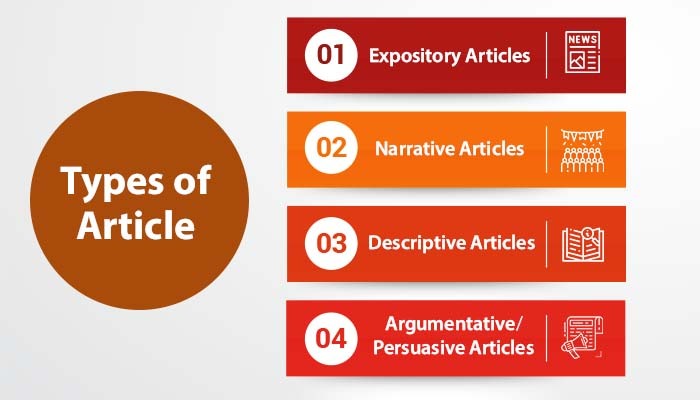Exploring the Perks of Using articles for Your Web content Technique
Exploring the Perks of Using articles for Your Web content Technique
Blog Article
How Articles Contribute to Clarity in Creating
The application of posts is usually overlooked, yet their influence on clearness in composing can not be underrated. Recognizing the subtleties of short article use is crucial for attaining quality, but what certain methods can authors utilize to harness their complete potential?
The Function of Articles
By marking nouns as definite or indefinite, posts guide the viewers's understanding of the subject matter, identifying between well-known and unknown entities. The certain post "the" shows a particular noun, while the uncertain articles "a" and "an" recommend a general or non-specific recommendation.
Including short articles properly boosts the coherence of composing, allowing authors to share their designated meanings with better precision. articles. Abuse or omission of articles can cause ambiguity, causing confusion for the reader. Mentioning "I saw pet dog" lacks clarity and specificity, whereas "I saw a canine" or "I saw the pet" conveys unique definitions.
Additionally, articles add to the rhythm and flow of sentences, affecting readability. A solid grasp of short article usage is vital for effective interaction, guaranteeing that the nuances of definition are managed and the message is provided clearly.
Sorts Of Articles
Understanding the different sorts of articles is basic to mastering their use in creating. Articles can be classified primarily into two kinds: guaranteed and uncertain articles. The definite write-up "the" defines a particular noun that is known to the viewers. For circumstances, saying "the book" implies that both the speaker and audience know which certain publication is being referenced. This precision aids to route the reader's emphasis and boosts clearness.
On the other hand, indefinite posts, such as "a" and "an," describe non-specific nouns. When one says "a publication," it suggests any type of book, not one in specific. This use is essential when presenting new principles or things to the discourse, as it provides a general structure without constricting the visitor to a certain recommendation.
Furthermore, short articles can also convey subtleties such as amount and uniqueness. "an apple" suggests any apple, while "the apple" might indicate that it is the only apple in the context. Understanding these distinctions permits authors to effectively manipulate write-ups for better quality and precision in their communication.
Articles and Specificity

Conversely, indefinite short articles like "a" or "an" introduce nouns in a much more general feeling, suggesting that the noun may not know to the viewers. As an example, "a book" recommends any type of book, leaving the specifics open to analysis. This difference is crucial for efficient writing, as it influences exactly how details is shared and recognized.
Typical Mistakes With Articles
Clearness in writing can usually be jeopardized by typical blunders with articles. One prevalent mistake entails the abuse of guaranteed and uncertain posts. Making use of "a" instead of "the" can lead to ambiguity, recommending that the noun is one of lots of rather than a specific entity. On the click for more other hand, omitting a short article entirely can render a sentence awkward or unclear, as in "She is instructor" rather of "She is an instructor."

Improving Quality Through Articles
Reliable interaction depends upon the accurate use write-ups, which can significantly enhance clarity in creating. Articles, including "a," "an," and "the," serve as indicators that direct visitors through the message. Their proper application not only clarifies which noun is being referenced but also develops the specificity and abstract principle of the subject issue.
Making use of definite and indefinite short articles properly can help avoid obscurity. Stating "the vehicle" specifies a certain automobile, while "an automobile" refers to any auto in basic. This difference is essential in ensuring that the reader understands the desired meaning without complication. In addition, regular use of short articles adds to the total circulation of composing, enabling smoother transitions in between concepts.
In academic and expert writing, clarity is critical. Abuse of write-ups can result in misunderstandings and misconceptions, interfering with the writer's credibility. Consequently, writers must pay cautious attention to short article use, as this tiny yet powerful facet of language can significantly improve the quality of their interaction. Inevitably, the reliable usage of short articles transforms creating from mere words right into a meaningful and easily accessible message.
Final Thought
In final thought, click for more info short articles are crucial devices in writing, considerably boosting clarity and accuracy. Proficiency of article usage ultimately contributes to a more coherent and engaging composing style, assisting in much better comprehension for visitors.
Report this page